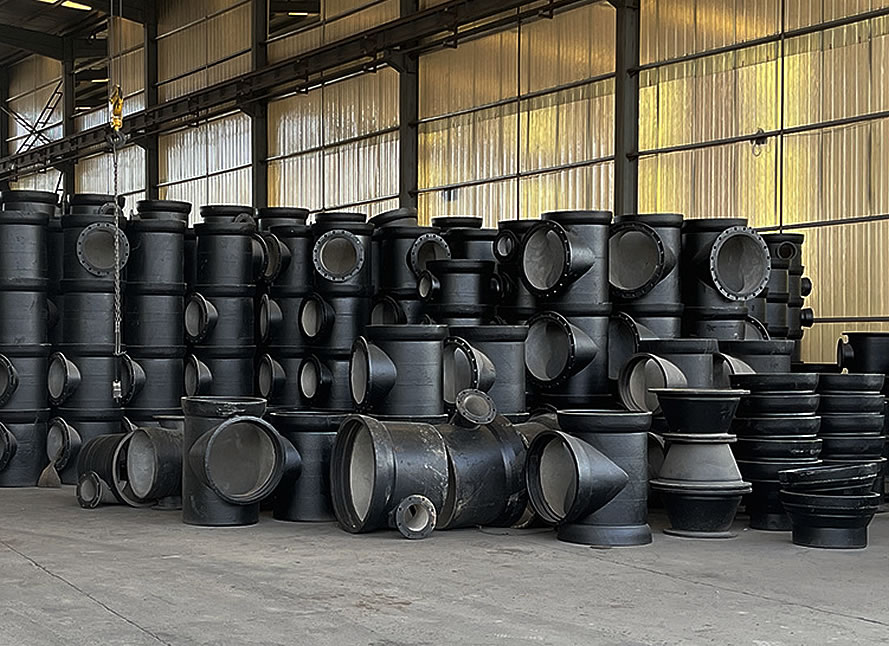All About Ductile Iron: An Overview of Its Advantages and Applications
Ductile iron is a type of iron alloy that has been altered to increase its strength and hardness. It contains carbon, silicon, manganese, nickel and sulfur which makes it more resistant to rust than other types of iron. Ductile iron is widely used in various industries such as construction, automobiles, home appliances and infrastructure projects due to its cost-effectiveness compared to other metals like aluminum or magnesium. Its unique properties make it an ideal choice for applications where strength and deformation are desired. Our company takes pride in using ductile iron for our products which provides us with the opportunity for better quality services at an affordable price for our customers.
1. Overview of Ductile Iron and its History
Ductile iron was first developed in the 1940s and is a result of decades of research and development. Ductile iron is a type of cast iron that has been altered to increase its strength and hardness. It contains carbon, silicon, manganese, nickel and sulfur which makes it more resistant to rust than other types of iron. Ductile iron has become increasingly popular due to its cost-effectiveness compared to other metals like aluminum or magnesium.
2. What is Ductile Iron Made From
Ductile iron is made from iron ore, a naturally occurring mineral composed of iron oxides and other minerals, which is then extracted and refined. Ductile iron is almost entirely composed of carbon, silicon, manganese, nickel, and sulfur. The carbon content is what gives ductile iron its higher strength compared to other types of cast iron.
3. Advantages of Ductile Iron
Ductile iron is known for its high strength and durability, as well as its ability to withstand extreme temperatures. It has a low coefficient of friction which makes it ideal for applications where wear resistance is desired. Ductile iron also has good electrical and thermal conductivity, making it an excellent choice for electrical and electronic components. Additionally, ductile iron is highly resistant to corrosion due to the addition of sulfur and nickel, making it more environmentally friendly than other types of cast irons.
4. Properties of Ductile Iron
The properties of ductile iron are what make it a desirable material for structural applications. Ductile iron has high tensile strength and impact resistance, as well as good machinability, which enables it to be easily shaped into desired shapes and sizes. Ductile iron also has low coefficient of friction, making it ideal for applications where wear resistance is desired. Additionally, its excellent electrical and thermal conductivity makes it an excellent choice for electrical components and other electronics.
5. Applications of Ductile Iron in Manufacturing
Due to its properties, Ductile iron is widely used in various industries such as construction, automobiles, home appliances and infrastructure projects. Ductile iron finds application in the manufacture of high-pressure valves, pipe fittings, castings for pumps and compressors, engine parts and other mechanical components. Ductile iron also provides great strength without sacrificing ductility or machinability which makes it an ideal choice for structural applications like bridges and buildings. Additionally, Ductile iron can be used to create intricate shapes while maintaining its strength which makes it a great option for manufacturing of complex structures.
6. Benefits & Drawbacks to Using Ductile Iron
The main benefit to using Ductile iron is its cost-effectiveness compared to other metals. Ductile iron also has excellent strength and durability, as well as good machinability which makes it an ideal choice for many manufacturing applications. Ductile iron also has a low coefficient of friction and great electrical and thermal conductivity which makes it a desirable material for electrical components. On the downside, Ductile iron can be difficult to weld due to its high carbon content, so special care must be taken when welding Ductile iron components together.
Overall, Ductile iron is a great option for many industries due to its cost-effectiveness and its unique properties that make it suitable for various applications.
7. Our Company’s Use of Ductile Iron and Quality Services
We specialize in Ductile iron fabrication and casting services. We use the highest quality Ductile iron to provide customers with exceptional products that will last much longer than those made from other materials. Our Ductile iron fabrications are known for their precision and accuracy, as well as their strength and durability. Additionally, we offer customized Ductile iron products tailored to meet customer’s specific needs.
We have expert engineers on staff who can assist customers in designing the perfect Ductile iron product for their application. Our team strives to provide excellent customer service at every step of the way, from initial consultation all the way through delivery of your Ductile iron product.
Ductile iron is a great option for many industries due to its cost-effectiveness and unique properties that make it suitable for various applications. With Ductile Iron’s high tensile strength, impact resistance, low coefficient of friction, excellent electrical and thermal conductivity as well as good machinability, Ductile Iron can be used in the manufacture of high pressure valves, pipe fittings and engine parts among other components. Our company specializes in Ductile iron fabrication and casting services with expert engineers on staff to provide customers with customized Ductile products tailored to their specific needs. We strive to offer exceptional customer service at every step of the way so you can get exactly what you need when it comes to Ductile iron products!

